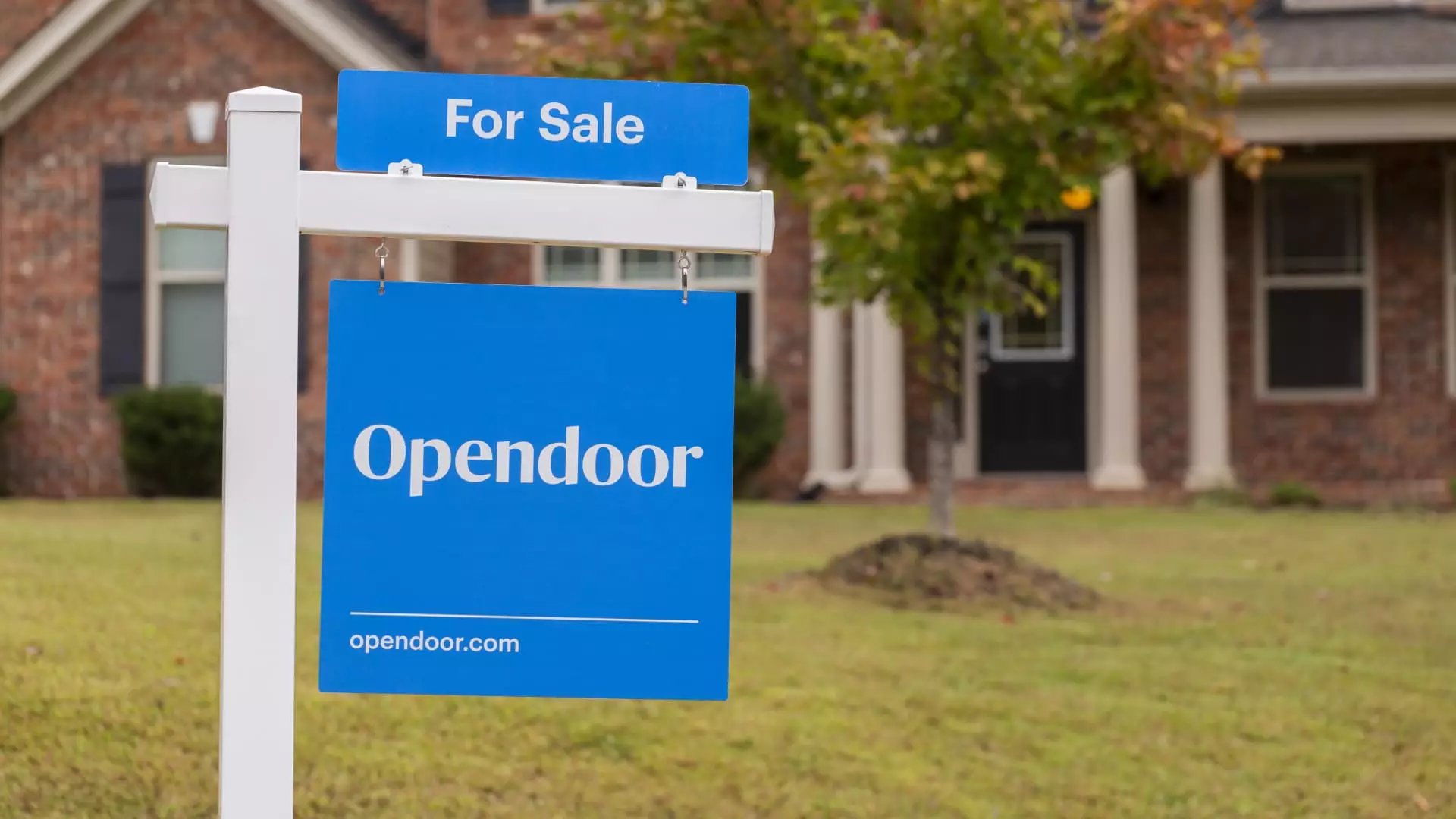The recent upheaval at Opendoor reveals much more than just a CEO resignation; it exposes the fragile veneer of innovation that often masks underlying financial fragility. Once heralded as a shining star in the online real estate arena, Opendoor now stands at a crossroads, its stock battered and its leadership in disarray. The company’s dramatic stock surge, sparked by some late-night speculative bets, belies a grim reality—one of over-leverage, misguided optimism, and a fundamentally flawed business model that cannot sustain itself without continuous hype. The sudden 10% jump on the heels of Carrie Wheeler’s resignation is emblematic of the fickle nature of investor sentiment, especially fueled by speculative-minded retail investors attracted more by narratives than fundamentals.
The Illusion of a Turnaround Amid Declining Business Metrics
What’s perplexing is how investors and market watchers continue to chase the illusion of a comeback, despite clear signs of deterioration. Opendoor’s latest earnings report paints a sobering picture: a sharply declining acquisition pipeline, with projected homes bought dropping from over 3,500 to just 1,200 in the third quarter. This downward trend underscores a critical flaw—an overreliance on technology-driven real estate transactions in an economic environment deeply challenged by rising interest rates and inflation. The company’s valuation, which soared to over $6 billion at its peak, has plummeted to roughly $2.5 billion, emphasizing how fragile this supposed “tech disruptor” truly is.
Leadership Showcases Its Flaws in Critical Moments
Carrie Wheeler’s decision to step down is arguably both a symptom and a cause of Opendoor’s ongoing struggles. Her tenure began in 2022, yet she could not halt the company’s rapid decline. The timing of her departure— amidst investor skepticism and waning confidence—raises questions about her effectiveness and vision. Critics argue that her leadership was more reactive than strategic, unable to adapt to market conditions or recalibrate the company’s long-term approach. Her assertion that her exit is to “make room for new leadership” feels like an admission that previous strategies failed to deliver the expected turnaround.
The Role of Speculative Frenzy and Market Manipulation
The surge in Opendoor’s stock appears heavily influenced by outside speculation, notably from hedge fund managers and venture capitalists who have vested interest in the company’s future. Eric Jackson’s call for “thinking big again” fuels unrealistic expectations, while his own aggressive positioning has blunted the rational analysis essential for sustainable growth. The involvement of prominent figures like Keith Rabois further complicates matters, as their vocal backing can exacerbate speculative bubbles. These actors seem more interested in leveraging hype to drive their own agendas rather than addressing the core business issues—namely, whether Opendoor can survive the current economic climate while maintaining profitability.
Deep Structural Flaws and a Questionable Business Model
At its core, Opendoor’s business model is fraught with vulnerabilities. The rapid expansion during Covid-era market euphoria was predicated on the assumption that house prices would continue appreciating and that technology could efficiently replace traditional real estate brokers. But the reality proved harsher: soaring interest rates hit mortgage affordability, reducing demand for home sales, and pushing down profit margins. The company’s reliance on heavy capital expenditure for property acquisitions in a declining market leaves it exposed to significant losses. The recent retrenchment—reducing acquisitions and slashing marketing—illustrates how fragile the entire operation is, dependent on external economic conditions beyond its control.
The Illusion of Resilience and the Need for Honest Reckoning
What lessons emerge from Opendoor’s saga? Perhaps the most vital is the dangerous allure of hype in the tech-driven real estate industry. The company’s early momentum, fueled by a SPAC boom and investor exuberance, masked fundamental flaws. Now, with leadership in flux and market conditions worsening, the stark truth emerges: no matter how innovative or technologically advanced a business claims to be, it cannot escape the laws of economic sustainability. The stock’s recent gains are likely artificial, driven more by speculation than any real confidence in the company’s ability to innovate its way out of trouble. If anything, Opendoor’s story underscores the peril of equating rapid growth with financial health—an illusion that even well-funded start-ups can fall victim to when structural weaknesses are ignored.

